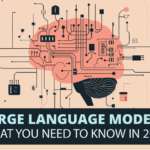In an era where digital transformation is reshaping the financial sector, Commerzbank has taken a…

Introduction: The Rise of AI in the Workplace
Artificial Intelligence (AI) has rapidly evolved from a futuristic concept to an integral part of modern business. From automating repetitive tasks to generating complex reports, AI has proven its ability to enhance efficiency and decision-making. But now, a new development is emerging—AI systems are being assigned managers.
This shift signals a fundamental change in how businesses operate. If AI is advanced enough to require supervision, coordination, and strategic oversight, what does that mean for human roles, corporate structures, and the future of work?
Why Does AI Need a Manager?
At first glance, the idea of an AI manager seems paradoxical. Isn’t AI supposed to replace managerial tasks? However, as AI systems become more sophisticated, their deployment at scale introduces new challenges:
-
Coordination Between AI Systems – Companies use multiple AI tools for different functions (e.g., customer service chatbots, predictive analytics, automated HR screening). Without oversight, these systems may conflict or duplicate efforts.
-
Bias and Ethical Oversight – AI can perpetuate biases present in training data. A human (or even another AI) must monitor outputs to ensure fairness and compliance.
-
Performance Optimization – Like any employee, AI models need performance reviews. A manager ensures they are updated, retrained, and aligned with business goals.
-
Human-AI Collaboration – AI doesn’t operate in a vacuum. A manager bridges the gap between AI outputs and human decision-makers.
The Role of an AI Manager
An AI manager isn’t just a glorified IT supervisor—it’s a hybrid role requiring technical expertise, strategic thinking, and people skills. Key responsibilities include:
-
AI Governance – Setting policies for ethical AI use, data privacy, and regulatory compliance.
-
Workflow Integration – Ensuring AI tools seamlessly fit into existing business processes.
-
Continuous Learning & Adaptation – Monitoring AI performance and retraining models as needed.
-
Stakeholder Communication – Translating AI insights into actionable business strategies for leadership.
In some cases, AI may even manage other AI systems—creating a hierarchy where a “supervisor AI” oversees specialized models.
Implications for the Workforce
The emergence of AI managers has profound implications:
-
New Job Opportunities – Roles like AI Trainer, AI Ethicist, and AI Operations Manager are growing.
-
Shift in Leadership Skills – Future managers must understand AI capabilities and limitations.
-
Human Roles Become More Strategic – As AI handles execution, humans focus on creativity, ethics, and high-level strategy.
-
Potential Job Displacement – Some traditional managerial roles may shrink as AI takes over routine oversight.
The Future: AI Managing Humans?
If AI can manage other AI, could it eventually manage humans? Some companies already use AI for:
-
Performance tracking (e.g., monitoring productivity metrics).
-
Automated scheduling and task delegation.
-
Real-time feedback systems.
However, human judgment remains critical for empathy, cultural fit, and complex decision-making. The most likely scenario is a collaborative model, where AI handles data-driven management tasks while humans focus on leadership and interpersonal dynamics.
Conclusion: Adapting to the New Game
The fact that AI now has managers proves that automation is no longer just about replacing labor—it’s about integrating intelligence into every layer of business. Companies that embrace this shift will thrive, while those that resist may fall behind.
For professionals, this means:
-
Upskilling in AI literacy and data-driven decision-making.
-
Adapting to hybrid human-AI teams.
-
Focusing on skills that AI cannot replicate (creativity, emotional intelligence, ethics).
The game has changed. The question is: Are you ready to play?





